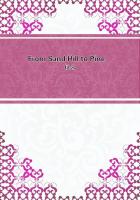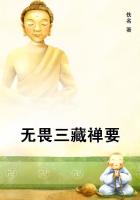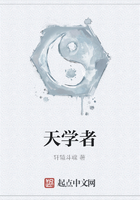The old English idea of this sublime devotion to duty was expressed by the loyalist poet to his sweetheart, on taking up arms for his sovereign:-"I could love thee, dear, so much, Loved I not honour more.' (1)And Sertorius has said: "The man who has any dignity of character, should conquer with honour, and not use any base means even to save his life." So St. Paul, inspired by duty and faith, declared himself as not only "ready to be bound, but to die at Jerusalem."When the Marquis of Pescara was entreated by the princes of Italy to desert the Spanish cause, to which he was in honour bound, his noble wife, Vittoria Colonna, reminded him of his duty. She wrote to him: "Remember your honour, which raises you above fortune and above kings; by that alone, and not by the splendour of titles, is glory acquired--that glory which it will be your happiness and pride to transmit unspotted to your posterity." Such was the dignified view which she took of her husband's honour; and when he fell at Pavia, though young and beautiful, and besought by many admirers, she betook herself to solitude, that she might lament over her husband's loss and celebrate his exploits. (2)To live really, is to act energetically. Life is a battle to be fought valiantly. Inspired by high and honourable resolve, a man must stand to his post, and die there, if need be. Like the old Danish hero, his determination should be, "to dare nobly, to will strongly, and never to falter in the path of duty." The power of will, be it great or small, which God has given us, is a Divine gift; and we ought neither to let it perish for want of using on the one hand, nor profane it by employing it for ignoble purposes on the other. Robertson, of Brighton, has truly said, that man's real greatness consists not in seeking his own pleasure, or fame, or advancement--"not that every one shall save his own life, not that every man shall seek his own glory--but that every man shall do his own duty."What most stands in the way of the performance of duty, is irresolution, weakness of purpose, and indecision. On the one side are conscience and the knowledge of good and evil; on the other are indolence, selfishness, love of pleasure, or passion.
The weak and ill-disciplined will may remain suspended for a time between these influences; but at length the balance inclines one way or the other, according as the will is called into action or otherwise. If it be allowed to remain passive, the lower influence of selfishness or passion will prevail; and thus manhood suffers abdication, individuality is renounced, character is degraded, and the man permits himself to become the mere passive slave of his senses.
Thus, the power of exercising the will promptly, in obedience to the dictates of conscience, and thereby resisting the impulses of the lower nature, is of essential importance in moral discipline, and absolutely necessary for the development of character in its best forms. To acquire the habit of well-doing, to resist evil propensities, to fight against sensual desires, to overcome inborn selfishness, may require a long and persevering discipline; but when once the practice of duty is learnt, it becomes consolidated in habit, and thence-forward is comparatively easy.
The valiant good man is he who, by the resolute exercise of his freewill, has so disciplined himself as to have acquired the habit of virtue; as the bad man is he who, by allowing his freewill to remain inactive, and giving the bridle to his desires and passions, has acquired the habit of vice, by which he becomes, at last, bound as by chains of iron.
A man can only achieve strength of purpose by the action of his own freewill. If he is to stand erect, it must be by his own efforts; for he cannot be kept propped up by the help of others.
He is master of himself and of his actions. He can avoid falsehood, and be truthful; he can shun sensualism, and be continent; he can turn aside from doing a cruel thing, and be benevolent and forgiving. All these lie within the sphere of individual efforts, and come within the range of self-discipline.
And it depends upon men themselves whether in these respects they will be free, pure, and good on the one hand; or enslaved, impure, and miserable on the other.
Among the wise sayings of Epictetus we find the following: "We do not choose our own parts in life, and have nothing to do with those parts: our simple duty is confined to playing them well.
The slave may be as free as the consul; and freedom is the chief of blessings; it dwarfs all others; beside it all others are insignificant; with it all others are needless; without it no others are possible.... You must teach men that happiness is not where, in their blindness and misery, they seek it. It is not in strength, for Myro and Ofellius were not happy; not in wealth, for Croesus was not happy; not in power, for the Consuls were not happy; not in all these together, for Nero and Sardanapulus and Agamemnon sighed and wept and tore their hair, and were the slaves of circumstances and the dupes of semblances. It lies in yourselves; in true freedom, in the absence or conquest of every ignoble fear; in perfect self-government; and in a power of contentment and peace, and the even flow of life amid poverty, exile, disease, and the very valley of the shadow of death." (3)The sense of duty is a sustaining power even to a courageous man.
It holds him upright, and makes him strong. It was a noble saying of Pompey, when his friends tried to dissuade him from embarking for Rome in a storm, telling him that he did so at the great peril of his life: "It is necessary for me to go," he said; "it is not necessary for me to live." What it was right that he should do, he would do, in the face of danger and in defiance of storms.















